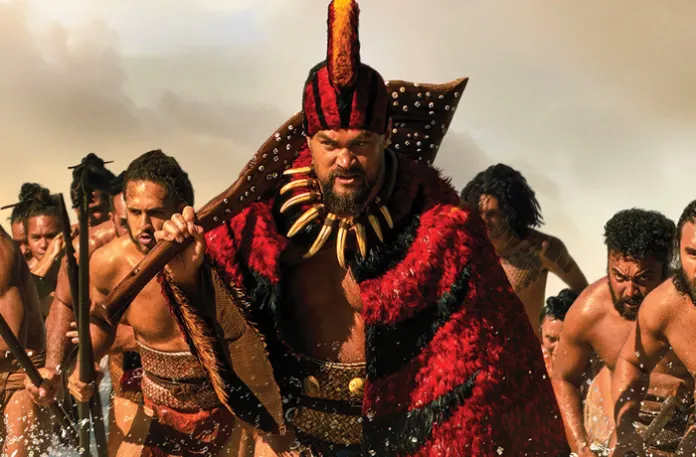Hawaii occupies a strange place in the consciousness of most Americans. For most of us, it’s a vacation spot. A tropical island paradise with idyllic beaches, majestic waves, and towering volcanoes.
But Hawaii’s history is also one that is completely different from the 49 mainland states. It is one of only two states that, as an independent nation, had diplomatic relations with the government of the United States. And it is the only state that has pretenders to a defunct monarchy.
But the story of Hawaii’s journey from a group of islands full of warring clans to U.S. territory and then a state over the course of a century and a half is a fascinating one. The Hawaiian Islands, as we know them, did not exist as a unified political entity until several years after George Washington completed his two terms as president.
HOLLYWOOD FINALLY CRITICIZES #METOO
The new Apple TV series Chief of War is, by all accounts, the first attempt from a major film studio to tell the story of the political and military campaign that turned the Hawaiian Islands from a collection of warring kingdoms into a singular political entity. The series features Aquaman star Jason Momoa in the lead role, not of King Kamehameha, the architect of the unification, but of Kai’ana, a warrior who would become one of Kamehameha’s trusted confidants as he began his campaign to unify the islands.

The series is remarkable in both its scale and execution. Momoa, who also helped produce the series and directed its final episode, has said the series is his “Braveheart,” both as a personal passion project and a large-scale war epic on par with the 1995 Mel Gibson film. And indeed, the attention to detail and historical accuracy in the series, as well as its ambitious nature, make it an apt comparison.
It also makes it an anomaly in modern Hollywood. The days of great historical epic films have largely receded. The years surrounding the turn of the century featured critical and box office hits such as Braveheart, Gettysburg, Gladiator, The Patriot, Master and Commander: The Far Side of the World, and Dances with Wolves, to name a few. But recent offerings in the genre, such as Napoleon, The Last Duel, and others, have failed to inspire audiences and critics alike. And as a series, arguably the only historical drama series from the colonial era in the last 20 years that remotely compares to Chief of War in star status, scale, and ambition, is HBO’s 2008 miniseries John Adams.
I’ll admit that I began watching Chief of War somewhat skeptical of what would be presented. The history of Hawaii and its interaction with the European world, especially the English explorers that first journeyed to its shores in the 18th century, was ripe for the exact sort of historical revisionism that is commonplace in Hollywood and in most public schools: The white man is always bad, and the indigenous population is full of peaceful saints who were victims of colonial oppression.
But that isn’t what the series delivered. Instead, it delivered a compelling and honest accounting of the history of Hawaii, including the human sacrifices and brutal conflicts that plagued the islands prior to unification, while also prominently featuring the roles that English explorers played in arming and aiding the unification effort, while not sugarcoating the darker parts of their involvement, including a graphic and disturbing depiction of the Olowalu Massacre.
ELITE PRIVILEGE: LEGACY MEDIA PRETEND CRIME DOESN’T EXIST
Last year, I visited Puʻukoholā Heiau National Historic Site on the Island of Hawaii, where King Kamehameha began his campaign to unify the Hawaiian Islands. The park ranger there gave a presentation on the history of the place and insinuated that Kamehameha’s campaign to unify the islands was part of a broader effort by Western “white men” to colonize and exploit Hawaii and its people.
As I watched a scene in the series where one of the Hawaiian chiefs sacrifices someone to a lava pit, I couldn’t help but wonder if that ranger believed that human sacrifice was a price worth paying to keep “white” influence away from the shores of America’s tropical paradise.
